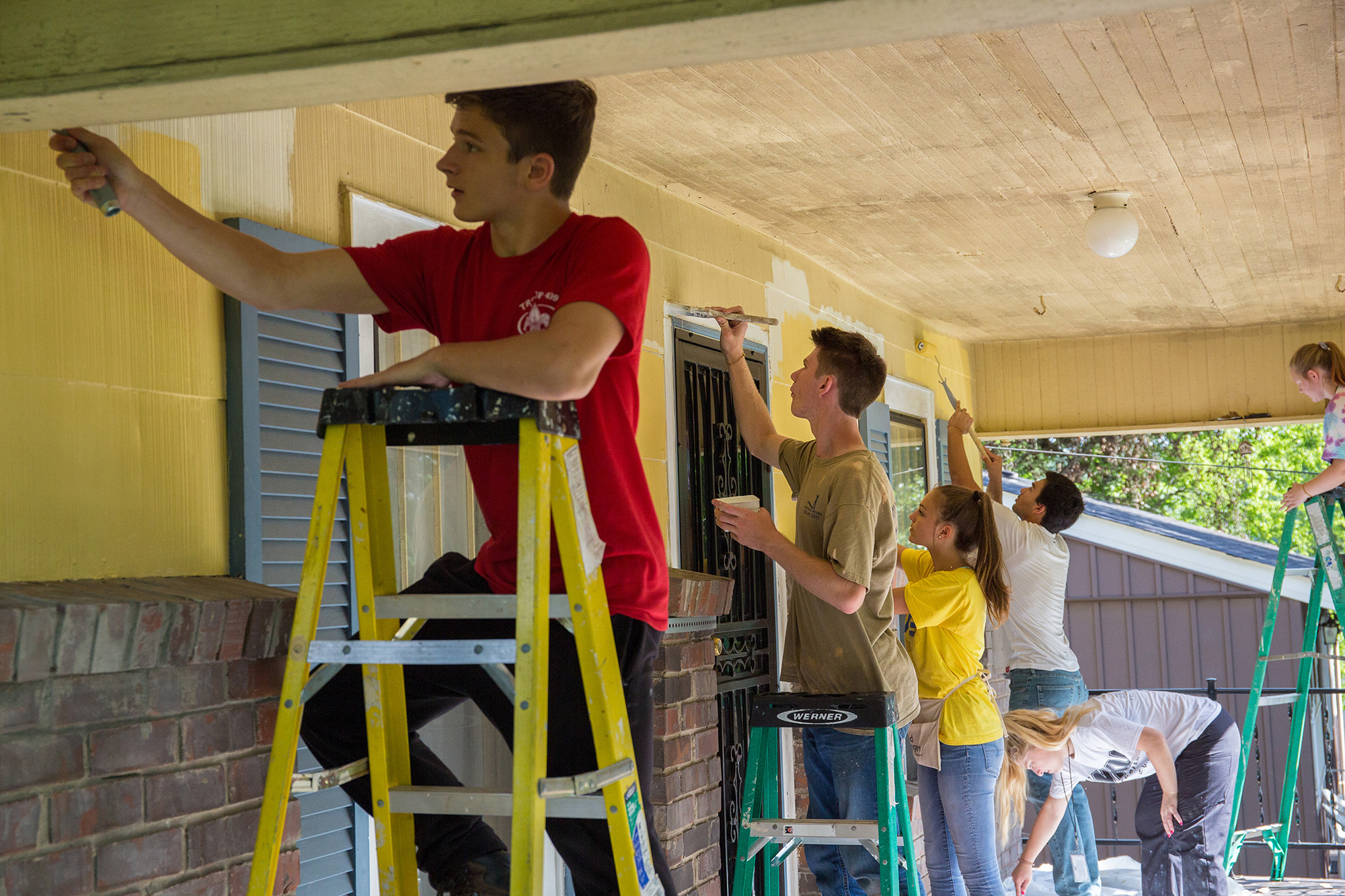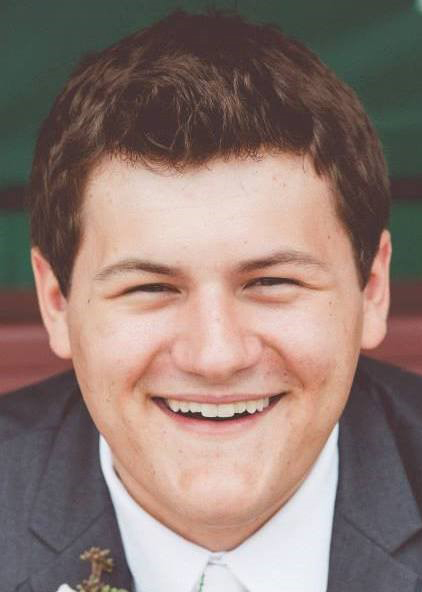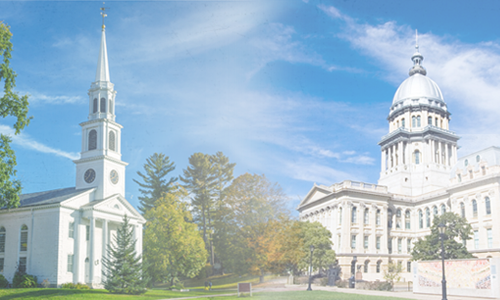
NASHVILLE, Tenn. (BP) — Churches are gathering again, but services and programs remain drastically different from the beginning of the year.
At the start of the COVID-19 outbreak, according to previous surveys from LifeWay Research, Protestant churches across the U.S. stopped gathering in-person in a matter of weeks.
The latest LifeWay Research survey of Protestant pastors found congregations have slowly and cautiously started to meet again.
“While more and more churches have resumed in-person worship services, it has not always been a straight path back,” said Scott McConnell, executive director LifeWay Research. “Some have had difficulty resuming or had to stop meeting again as things got worse in their area.”
Cautious regathering
Each Sunday in April, fewer than 1 in 10 Protestant churches held in-person services. Starting in May, those numbers began to climb. By the first weekend in June, a majority (55%) were gathering. In July, more than 7 in 10 have met physically. 
Still, 21% of Protestant pastors say their churches have not held in-person meetings during the past three months.
Around 1 in 5 churches (21%) offered drive-in services where attendees participated from their vehicles at some point during the pandemic.
For those churches choosing to meet physically indoors, 99% point to some type of health and safety precaution they are taking.
More than 3 in 4 pastors say they provided hand sanitizer, masks or gloves to those needing it (94%), conducted additional cleaning of surfaces (86%), or closed seats to increase distance between people (76%).
Most have recommended masks (59%), but only around a third (35%) have required attendees to wear them.
Around 1 in 5 have added services (21%) or additional viewing rooms (18%) to allow people to spread out more.
 Others have conducted temperature checks of staff and volunteers (21%). Some have also checked temperatures of all attendees (14%).
Others have conducted temperature checks of staff and volunteers (21%). Some have also checked temperatures of all attendees (14%).
“Resuming in-person worship services has not been reverting to worship as usual,” McConnell said. “Churches are making efforts to make the environment safe, but these efforts are often second-guessed by those who want more precautions or less restrictions.”
COVID-19 impact
While most Protestant pastors still have not seen an attendee be diagnosed with COVID-19, the number who have is growing.
In March, 5% of pastors said one of their attendees had a positive diagnosis. That jumped to 20% in April. For May through July, 28% of pastors say someone in their church has been diagnosed with COVID-19.
One in 20 Protestant pastors (5%) have dealt with an attendee dying from the coronavirus.
Pastors in the Northeast are more likely to say someone in their congregation has been diagnosed with COVID-19 (41%) and that someone in their congregation has died from it (10%).
In the past three months, pastors say church attendees have also dealt with reduced hours at work (74%) and losing a job (48%).
Pastors have also seen their congregations respond to shared needs, as 81% say attendees have helped each other with tangible needs and 60% say attendees have met tangible needs in the community connected to the coronavirus.
More than 4 in 5 pastors (83%) say new people who have not attended their church in the past have attended or connected online since the pandemic began. And 13% say an attendee has seen someone make a commitment to follow Christ after sharing the gospel.
In terms of the offering plate, 34% of pastors say they’ve received less in 2020 than at this point in 2019, with 29% saying giving has stayed around the same and 28% saying it has increased.
“In the fall of 2019, 21% of churches had received less funds than the prior year. Now more than a third see offerings retracting,” said McConnell. “The last time we saw this type of financial decline was in the fall of 2010 after the full impact of the last recession.”
To meet their financial obligations, some Protestant pastors say they applied for government assistance. Two in 5 (40%) say they applied for help through the CARES Act or the Small Business Administration, with 38% saying they applied and were approved. More than half (58%) say they have not applied.
Self-identified evangelical pastors are more likely than mainline pastors to say they have not applied for government aid (67% to 47%).
Uncertain future
Even though most Protestant churches are gathering, pastors are more hesitant to begin small group Bible studies or activities for children and teenagers.
Close to 3 in 10 pastors (29%) say in-person adult Bible studies are currently gathering, including 3% who say they never stopped. Almost 1 in 5 (18%) plan to restart those groups by September, 7% say some time in October through December, and 3% say in 2021. Meanwhile, 42% of pastors say they have not made that decision yet.
Half of Protestant pastors (51%) haven’t decided when to start in-person student ministry activities, while a quarter (23%) are meeting now, including 2% who say they never stopped. Some have made plans to begin in July (3%), August (7%), September (9%), sometime in October through December (5%), or in 2021 (2%).
Pastors are even more hesitant about kids ministry activities. Only 1% say they never stopped in-person activities with children, and 12% say they have resumed them. Almost 3 in 5 (57%) say it is still to be determined when they will start back. Fewer plan to begin in July (3%), August (6%), September (11%), sometime in October through December (7%), or in 2021 (3%).
“Maintaining social distance and necessary sanitation is very difficult with younger ages,” McConnell said. “To complicate things further, some of the volunteers who normally work with kids and students are in higher risk groups who are not ready to return any time soon.”
Methodology:
The online survey of 443 Protestant pastors was conducted July 20-22, 2020. Invitations were emailed to the LifeWay Research Pastor Panel followed by two reminders. The probability sample of Protestant churches was created by phone recruiting by LifeWay Research using random samples selected from all Protestant churches. Pastors who agree to be contacted by email for future surveys make up this LifeWay Research Pastor Panel.
Each survey was completed by the senior or sole pastor or a minister at the church. Responses were weighted by church average attendance, region, ethnicity of pastor and whether the pastor self-identified as evangelical or mainline to more accurately reflect the population.
The final sample is 443 useable surveys. The sample provides 95% confidence that the sampling error does not exceed plus or minus 5.0%. Margins of error are higher in sub-groups. Comparisons are made to surveys using the same methodology conducted March 30-31, 2020 with 400 completes and April 27-29, 2020 with 470 completes.
For more information, visit LifeWayResearch.com or download the full report.























